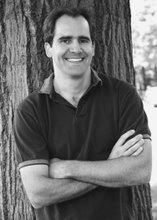This Week's Citation Classic
 This week's citation classic is Haldane J. B. S. 1935. The rate of spontaneous mutation of a human gene. J. Genet. 31, 317–326.
This week's citation classic is Haldane J. B. S. 1935. The rate of spontaneous mutation of a human gene. J. Genet. 31, 317–326.
John Burdon Sanderson Haldane was the quintessential eccentric British gentleman, but he made seminal contributions to evolutionary biology as a member, along with E.B. Ford, Sewall Wright and R.A. Fisher, of the Modern Synthesis.
Haldane's interest were broad and wide ranging. In addition to laying the foundations of quantitative evolutionary theory, he was one the first to estimate the mutation rate among humans. Haldane used estimates of the frequency of hemophiliac men in London as a means to quantify the frequency of the x-linked recessive allele responsible for hemophilia.
"If x be the proportion of haemophilic males in the population, and f their effective fertility, that is to say their chance, compared with a normal male, of producing offspring, then in a large population of 2N, (1–f )xN haemophilia genes are effectively wiped out per generation. The same number must be replaced by mutation. But as each of the N females has two X-chromosomes per cell, and each of the N males one, the mean mutation rate per Xchromosome per generation is 1/3(1–f )x, or if f is small, a little less than 1/3(x). Hence we have only to determine the frequency of haemophilia in males to arrive at the approximate mutation rate."
From the available data, Haldane deduced that the mutation rate probably exceeded 10^-5 and suggested between 1 in 100,000 and 1 in 20,000 as a plausible estimate. How close was he? Most estimates of the mutation rate in humans are on the order of 10^-5.
But Haldane wasn't just an armchair scientist.
"One experiment involving elevated levels of oxygen saturation triggered a fit which resulted in him suffering crushed vertebrae. In his decompression chamber experiments, he and his volunteers suffered perforated eardrums, but, as Haldane stated in What is Life, 'the drum generally heals up; and if a hole remains in it, although one is somewhat deaf, one can blow tobacco smoke out of the ear in question, which is a social accomplishment.'" From wikipedia.
In another experiment, he drank hydrochloric acid (HCl) to observe its effects on muscle action.
Haldane's penchant for futuristic ideas and forward thinking rivals Jules Verne. Here are a few ideas that originated from his polymathic brain:
-scientific feasibility of “test-tube babies” brought to life without sexual intercourse (which his friend Aldous Huxley wrote about to great effect in Brave New World.
-the "primordial soup" chemical origin of life in a "hot, dilute soup."
-silicon-based lifeforms
-a hydrogen-based renewable energy economy based on a network of hydrogen-generating windmills.
His famous essay Daedalus contains more of his futuristic thinking.
On Being the Right Size is one of my favorite short essays.
Why I am a Materialist was tremendously influential.
In addition to being an amazing scientist, Haldane was a tremendous wit. His sayings include:
-I have no doubt that in reality the future will be vastly more surprising than anything I can imagine. Now my own suspicion is that the Universe is not only queerer than we suppose, but queerer than we can suppose.
-My practice as a scientist is atheistic. That is to say, when I set up an experiment I assume that no god, angel, or devil is going to interfere with its course; and this assumption has been justified by such success as I have achieved in my professional career. I should therefore be intellectually dishonest if I were not also atheistic in the affairs of the world.
-An inordinate fondness for beetles. Reply to theologians who inquired if there was anything that could be concluded about the Creator from the study of creation.
-Four stages of acceptance:
(i) this is worthless nonsense;
(ii) this is an interesting, but perverse, point of view;
(iii) this is true, but quite unimportant;
(iv) I always said so.
-No, but I would to save two brothers or eight cousins. Reply when asked if he would give his life to save a drowning brother.
-I will give up my belief in evolution if someone finds a fossil rabbit in the Precambrian.
From Wikiquote.











What, no mention of his flair for fashion?
ReplyDeleteI thought that was self-evident from the photo. :)
ReplyDelete